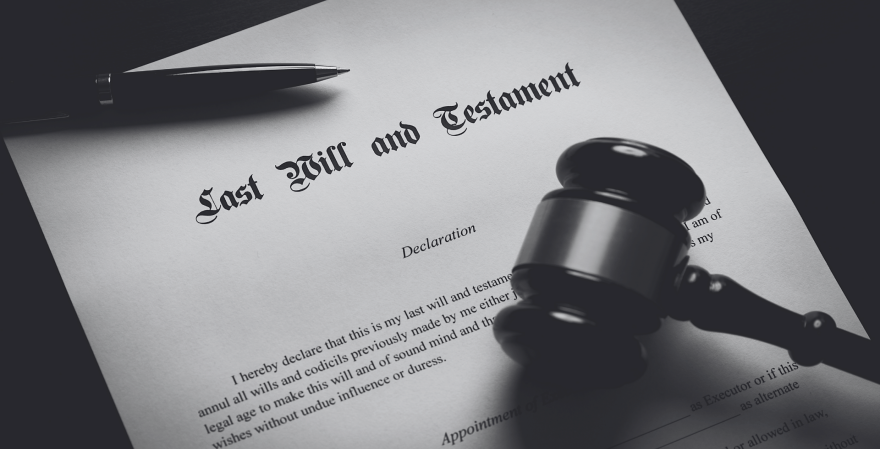Probable challenges to a Will and probate claims

Your Will or the Last Testament is an important document.
It is one document that will protect and/or take care of the interest of your loved ones and those whom you respect and owe gratitude to and therefore you need to spare them of unwanted botheration, delay, costs and unexpected and unsavory acrimony within the family. A Will properly and correctly written and executed will aid in a smooth transition of the title and entitlement of your assets to loved ones as per your wishes.
However, quite often, even your best efforts may not be a smooth sail-through as someone or the other may be disheartened on the manner you have decided on the distribution of your assets or even the selection or prioritization of the beneficiaries. A Will can always be challenged.
But challenging a Will is not that easy. Courts strictly respect the decision of the distribution made in a Will and generally hold on to its contents since the Testator is not alive to defend himself. However, if one can challenge a Will on critical points and convince the court, the Will can be set aside and rendered void, entirely or in part. WE advice that an advocate should always be consulted to understand the laws before challenging the Will.
Challenging a Will may be on many grounds some of which are mentioned below. Hence, when you write a Will, please put in extra efforts to ensure that there are no mistakes in the contents.
Want of testamentary competency:
Though Wills are not essentially Contracts falling under the Contract Act, it is important to mention that one of the important features of a valid contract is the “enforceability” of a Contract. It is covered under Sec 2(h) of the Indian Contract Act 1872.
What is means is that the Parties to a Contract should be “Competent to Contract”. A similar analogy or similarity will be required to be met by a Testator of a Will. He should be one who is Competent to make the Will, be a person who has attained the age of majority, be of sound mind, and NOT be under any undue influence of threat or coercion or alcohol or other behaviour influencing drugs, etc.
Hence, under law, persons are presumed to possess a testamentary capacity or competency if they are 18 years or above in age, of sound mind and therefore are entitled to make a Will. A Will can therefore, be challenged on the basis of senility, dementia, insanity, or in case the testator has been under influence of drugs etc, or otherwise was lacking the mental capacity to make a Will. In such cases, the contest of a Will based on mental incapacity is require to prove that the Testator did not, at that time, realise the consequences of writing a Will or bequeathing his assets. Hence, it is often advised that in addition to two witnesses, the Testator should also simultaneously get a certificate from a practicing medical professional to the effect that he was in good health and of sound mind and attach such a certificate to the Will. (Though this is not a requirement under law)
Want of due execution: This includes signature of the maker of the Will and that of the TWO witnesses.
A valid Will must be in writing and duly signed by the testator. It must be done in the presence of two witnesses, who are required to attest the Will. If the process is not adhered to, a Will can be challenged. Witnessing cannot be made after it is signed earlier or signed later. It should be simultaneous.
Lack of knowledge or approval: A Will can be challenged if it can be proved that the testator was not aware of what was mentioned in the Will when he signed it. This includes a situation where the Will is written in a language that he does not understand or there are some technicalities mentioned that he is incapable of comprehending. It may also include something which is vaguely written or mentioned or where there will be no “identity of minds” between the maker of the Will and the Executor or/and the Beneficiaries.
Fraud/Undue influence: Again, a Will can be challenged by proving that the Will was procured by fraud, forgery, or undue influence or coercion, that is, the lack of free will or without enough attention to the consequences of the bequests made through the Will.
Want of due intention: The contester must prove that the Testator did not have the intention to write a Will. (That he signed it along with other unrelated documents and/or without assigning due importance). This is a difficult proposition unless it can be shown that there are series of documents signed by the Testator unintentionally, without assigning due care and carelessly. Still it is a tough challenge.
Fraud or forgery: If a contest on this ground is to be made, the challenger of the Will must establish that the signature of the Testator on the Will was forged or that it was not signed by the testator, or the Will was created through a fraudulent act. Such allegations are both difficult as also easy, as today, the forensic sciences can establish the correctness of the signatures.
Mention of the revocation of earlier Will: Despite a Will being registered, it can still be challenged in a court on grounds that there are suspicious facts, and the court will surely look into it and examine the Will even if it is registered. A registered Will may not be considered the last testament if it can be proved that there is a new Will, which is valid and even if the new Will is unregistered.
It is noticed that of all the Wills that are registered, about 15% of them are still challenged. Similar is the case with unregistered Wills.
Member of a family: A family member can challenge a Will if it can be proven that they were not provided for satisfactorily in the Will. But this is a very difficult ground for challenge except in the case of immoveable property or family antics that was/were inherited by the Testator to which such family member has a right.
Contesting a probate
According to the Succession Act, there are certain grounds based on which a probate of a Will can be contested or even revoked. This can only be done if the individual challenging the probate proves before the court that it is essential to revoke the probate ‘for just cause’.
Some of the grounds on which a Probate can be challenged are:
- The process/proceedings to attain a grant of probate were defective in
substance; - The probate was secured by unfair or unjust means, by making a false
statements or concealing material materials that were important to the probate
proceedings or obtained the Probate through an untrue statement of a fact
necessary for justifying the grant, even if such statements/allegations were
made out of ignorance or even unintentionally; - The grant has become useless and inoperative through certain emerging
circumstances - The individual to whom the grant of Probate was made has knowingly and
without reasonable cause omitted to exhibit an inventory or an appropriate
account which is true in a material respect and adversely affecting the
Probate so issued.




